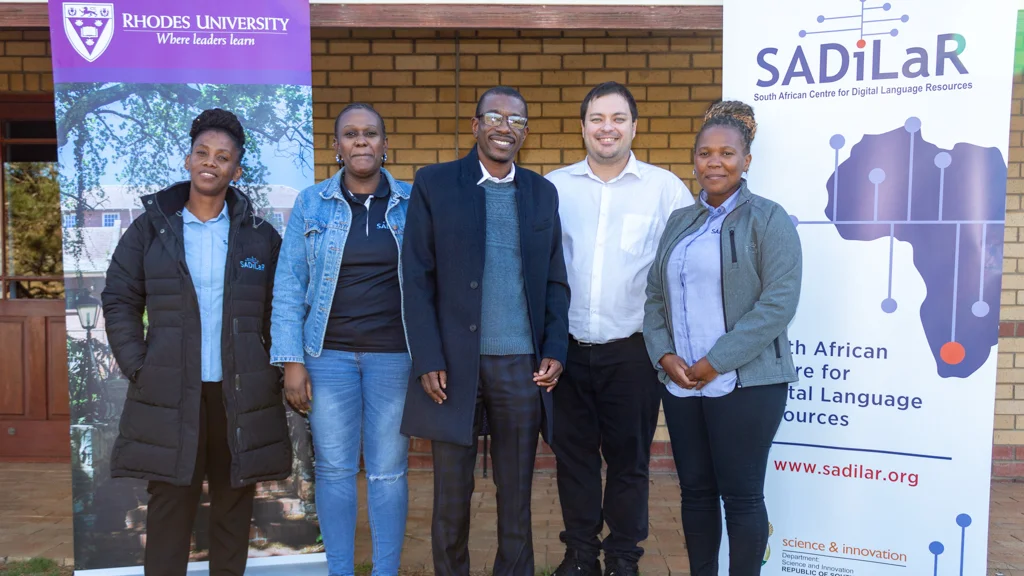
By Esethu Seholoba
Rhodes University hosted the first sector-wide Language Resources Audit conducted by the South African Centre for Digital Language Resources (SADiLAR) at the Continuing Education Centre this week. The SADiLAR's audit team was led by their Operations Director, Jaun Steyn. Professor Dion Nkomo, the NRF SARChI Chair in Intellectualisation of African Languages, Multilingualism and Education, and Vuyo Baneti, the Equity and Institutional Culture Manager, received it.
Section 29(2) of the South African Constitution states, "Everyone has the right to receive education in the official language or languages of their choice in public educational institutions where that education is reasonably practicable. In order to ensure the effective access to, and implementation of, this right, the state must consider all reasonable educational alternatives". The audit is intended to ensure that this mandate is upheld through the development and sharing of relevant language resources across the higher education sector.
According to Professor Nkomo, the audit is a stock-taking exercise to determine the resources and infrastructure available across the Higher Education sector to facilitate resource sharing and collaboration in developing resources needed to implement the Language Policy Framework for Public Higher Education Institutions and institutional language policies. “The audit was approved by the Universities South Africa (USAf) Board, which constitutes the vice-chancellors of the 26 public universities,” added Professor Nkomo.
Professor Nkomo said the audit also aims to help institutions develop other resources to implement their language policies. Rhodes University Vice-Chancellor, Professor Sizwe Mabizela, spoke extensively about the importance of the language policy and the implementation thereof. “This is an important exercise in the life of Rhodes University because it will enable us to reflect on language resource needs as an institution and inform our language policy review, promote multilingualism and the implementation of the Language Policy Framework for Public Higher Education Institutions. This exercise will also inform the conceptualisation of the Language Centre, which is one of the priority goals in our strategic document, the Institutional Development Plan. It is of utmost importance to preserve language because if we lose it, we lose our identity,” said Professor Mabizela.
Professor Nkomo indicated a few milestones Rhodes University has achieved in its quest to implement the language policy. He highlighted that the institution's language policy is a milestone in its own right. He said the shift from being a historically monolingual institution to one with a policy that mandates it to embrace multilingualism, including isiXhosa, is a milestone for the institution. He applauded the institution's significant progress in promoting linguistic diversity. He also cautioned that the University should not be complacent because it has a language policy; it needs a monitoring and evaluation process to ensure implementation.
The session was closed off with the students partaking in answering a 30-minute survey. The survey required students to list some of their concerns with the implementation of the language policy so far, provide an opinion about how far the institution has come in its quest, and make much-needed suggestions as to the implementation of the policy. The students raised a need for easier access to internet sources in the other official languages embraced by the institution's language policy. They presented that the institution needs to publicise its language policy and plan on its official website as an accountability mechanism. They agreed that there has been progress in implementing the language policy.

